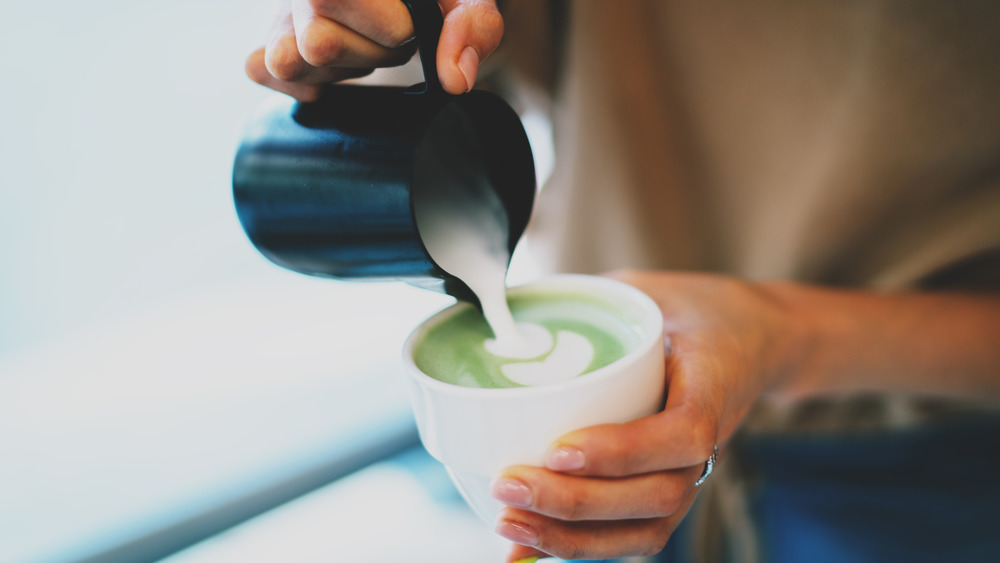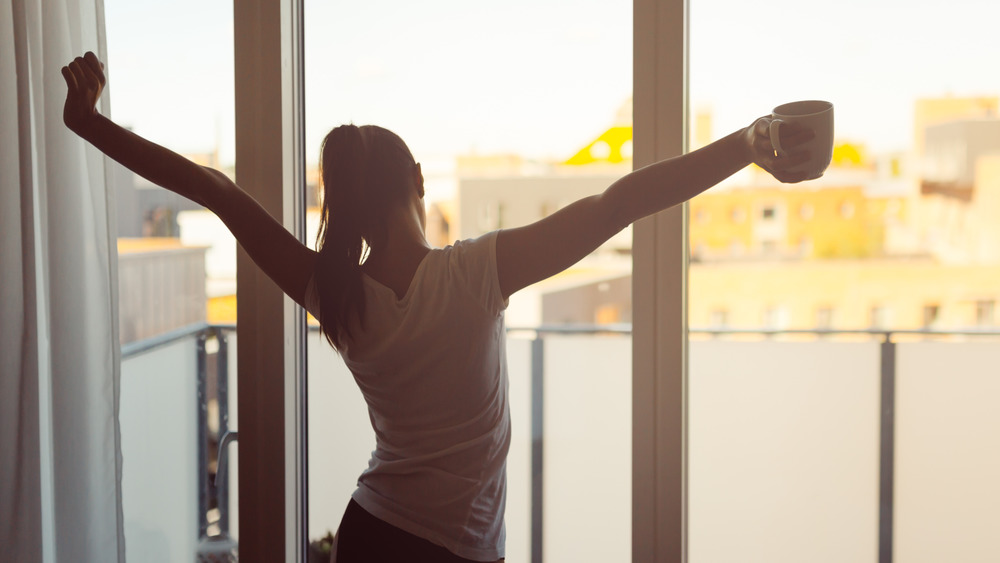Matcha Vs. Coffee: Which One Leaves You With More Energy?
When it comes to selecting your morning drink of choice, there are a lot of options to consider. While coffee has been a forever favorite, matcha has also been showing face in pop culture a lot more as of late. But what is matcha? You've most likely heard it mentioned in countless commercials or maybe you've noticed the ingredient pop up on your favorite menu. If you're still wondering, matcha is a powdered type of Japanese green tea loaded with a significant amount of antioxidants and highly concentrated nutrients (via Eat This, Not That!). The nutritional content is also ten times greater than its traditionally steeped tea counterpart.
Oftentimes, matcha is compared to coffee, as the two both share some pretty substantial health benefits. According to Healthline, sipping on coffee or matcha has been linked to helping enhance mood and brain function in addition to improved liver health. Yet, taking a closer look at the effects, which one gives you the most bang for your buck? In other words, should you start your day off with a cup of coffee or matcha?
Matcha gives you a different boost than coffee
When comparing levels of caffeine, both coffee and matcha give you that added boost of energy. However, they hit differently. Healthline mentions how coffee is known to provide almost instantaneous energy, with effects kicking in as early as 15 minutes after intake. When it comes to matcha, the process can take longer but that might not be considered a bad thing after all.
According to Women's Health, because matcha brings an amino acid with it called l-theanine — which helps your body absorb caffeine more slowly — you're less likely to experience a dreaded caffeine crash. In fact, "l-theanine is believed to have a calming effect in the body," nutritionist Keri Gans explained to the outlet.
So whether or not you reach for your regular coffee or switch things up with matcha, you're bound to get that needed level of energy. Just be aware of how your body is going to react later on in the day.

